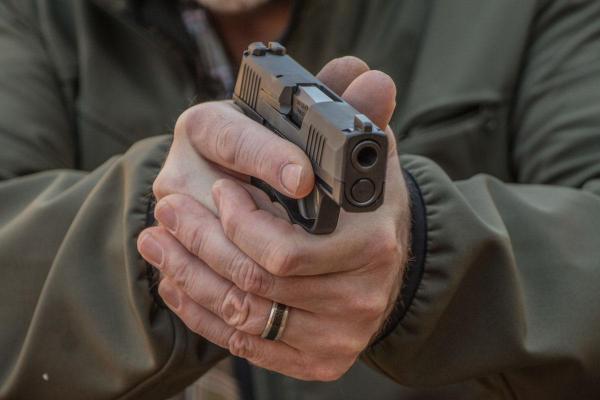The myth and reality behind what it takes for a handgun to stop an assailant
During the time I worked in law enforcement I pointed a handgun at a lot of people.
Except on just a few occasions, that never failed to make those people stop doing bad things.
Also, during that time, I investigated numerous incidents where good and bad people were shot with a handgun.
In every case, the person who was shot was stopped. By “stopped” I do not mean that they were killed.
What I mean by “stopped” is that they were no longer actively involved in the fight; they stopped being a threat or a problem for the person who shot them.
Fear Factor
Granted, this is only the experiences of one person, but by and large it is the norm as opposed to the exception.
When you point a gun at someone, more likely than not they will cease being a threat. The same thing is true if you must shoot someone; getting shot has a way of changing people’s minds.
This generally applies no matter what cartridge the handgun you point at someone or shoot someone with is chambered for.
The fear of getting shot and actually getting shot is an immensely terrifying event.
This is partly because we’ve seen hundreds of people getting fake shot on TV and we understand it to be a traumatic and deadly experience.
The truth is that with a fast response time and modern emergency response services, many wounds caused by handguns are survivable.
The potential to survive a gunshot depends more on where someone has been shot than what they have been shot with.
Still, countless hours and research have been expended in an effort to determine which defensive handgun cartridge, load, or bullet, might be best at stopping bad guys.
Disagreements Among the Experts
A study in 1904 determined the .45 Auto was twice as effective as the 9mm. In 1985 the National Institute of Justice said the opposite.
Then in 1990 the FBI claimed the .40 S&W was better than both. A year later another study claimed high velocity violently expanding handgun ammunition was best.
At the same time the Naval Weapons Support Center claimed that slow 147-grain 9mm loads were even better.
Half a decade later, the Secret Service was singing the praises of high velocity 9mm loads.
Two years after that the Canadian Mounted Police claimed they’d found that some 9mm and .40 S&W loads outperformed the .38 Special (This of course surprised no one.)
Now the FBI has reverted to the very cartridge that in 1986 they claimed was insufficient for law enforcement application.
Playing the Odds
More than anything else, all of this should tell you that there’s no real consensus on what handgun stopping power really is.
However, in the real world, without the assistance of complicated experiments or detailed studies, there are a few things we can be reasonably sure of:
- If you point a handgun at someone doing bad things there is a good chance, they will stop doing bad things. Based on my experience the chances of this well exceed 70 percent.
- If you shoot at someone doing bad things, there is an even better chance they will stop doing bad things. The chances of this happening are probably higher than 90 percent.
- If you shoot at and hit a bad guy the chances that that bad guy will stop doing bad things climbs even higher. Probably 95 percent or even more.
The X-Factor
Of course, none of this takes into account villains who are under the influence of mind-altering drugs where they do not have the ability to conceive the fear of getting shot, or the pain if they are.
If you’re in a situation where you’re feloniously attacked by such a person, you cannot rely on pointing a gun at them, shooting at them, or even hitting them when you shoot at them, to stop them.
In such a situation you’re going to have to shoot them and hit them – in the right spot – with a bullet that’s capable of penetrating deep enough to seriously damage their vital organs, their support structure, or their nervous system.
Rethinking Stopping Power
Handgun stopping power does exist, but not in the way most think of it.
The fastest and most reliable means of handgun stopping power is the fear that getting shot or having been shot induces.
When you start having to rely on perfect shot placement and the ability of a bullet to create enough damage or pain to cause immediate incapacitation or the cessation of hostile activates, your chances of instantaneously stopping a threat are drastically reduced.
Real, though unmeasurable, handgun stopping power comes from fear. Beyond that the best thing you can do is shoot well and take cover.






